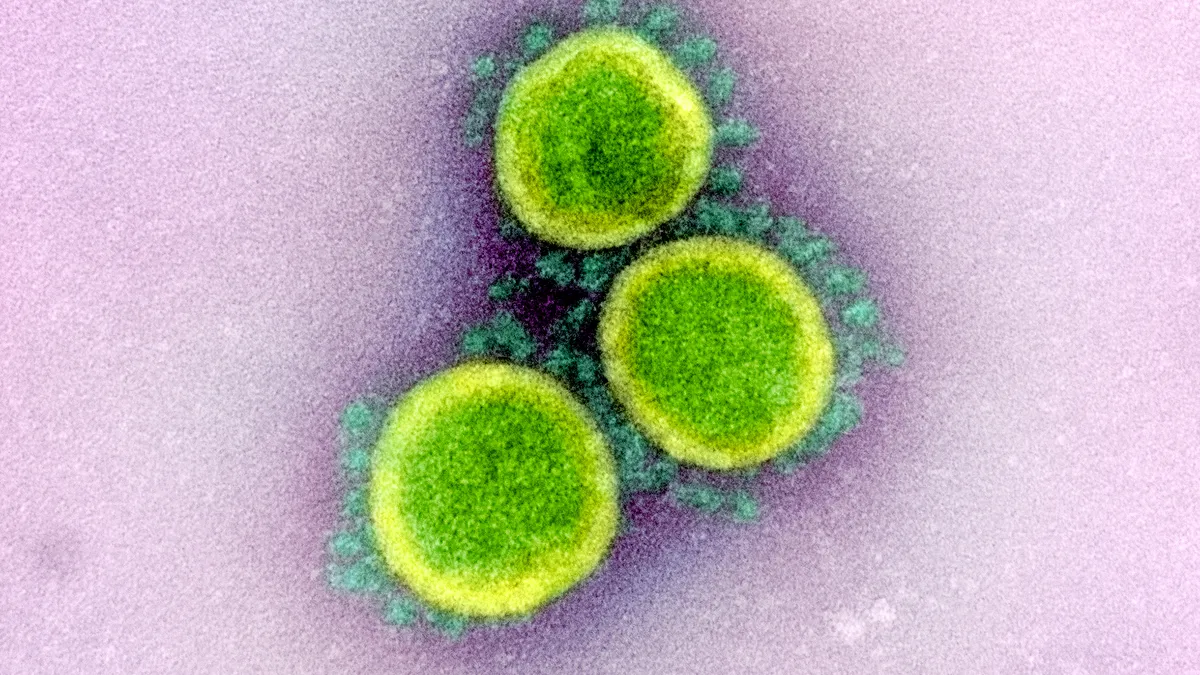Dive Brief:
- Thermo Fisher Scientific and PerkinElmer have expanded their respective SARS-CoV-2 assays to help laboratories identify mutations associated with the rapidly emerging variants.
- Thermo Fisher launched a customizable panel of 22 PCR assays for identification of mutations to track virus variants that cause COVID-19. PerkinElmer will sell to labs a PCR assay that can detect mutations associated with B.1.1.7, B.1.351 and P.1 variants, the currently dominant strains, as well as a next-generation sequencing kit to detect all SARS-CoV-2 genetic changes.
- The products come days after a Rockefeller Foundation report found that the U.S. is currently conducting sequence-based surveillance for fewer than 1% of coronavirus cases, lagging far behind many countries. "The United States has been flying virally blind," the report warns.
Dive Insight:
Emergence of SARS-CoV-2 mutations has spurred a critical need to track and better understand their biology at the molecular level and determine how changes in the virus impact transmission and virulence, as well as the effectiveness of vaccines and therapeutics.
However, genomic data is not being analyzed or shared fast enough to help public health authorities and scientists make informed decisions about relaxing precautions or adapting vaccines and treatments, according to the Rockefeller Foundation.
PerkinElmer and Thermo Fisher are looking to provide laboratories with PCR assays that will enable surveillance of variants that are causing COVID-19 infections and to help them better select which mutations to track to limit their spread.
Thermo Fisher's TaqMan SARS-CoV-2 Mutation Panel, which gives results in about an hour, can run a few or hundreds of samples to identify mutations. The panel of 22 assays runs on current real-time PCR instrumentation and is customizable to adapt quickly as additional variants emerge, Thermo Fisher contends.
Labs can use PerkinElmer's PKamp VariantDetect SARS-CoV-2 PCR Assay and Next Generation Sequencing-based Variant-Seq SARS-CoV-2 Kit to identify genomic mutations within hours by performing secondary testing on positive COVD-19 samples.
With new and "very worrisome" mutations emerging in the U.S., the Rockefeller Foundation on Monday called for the creation of a national genomic surveillance system for gathering and sharing information on SARS-CoV-2 variants.
"Until the U.S. is able to boost genomic surveillance, economically devastating shutdowns remain among the few effective tools to check rapid variant spread — an expensive and disruptive sledgehammer when a scalpel is needed," the report states.
The Centers for Disease Control and Prevention in January awarded separate contracts to lab rivals Quest Diagnostics and LabCorp to provide genomic sequencing of samples of SARS-CoV-2 and study COVID-19 variants in an effort to improve the U.S. public health response. Financial terms of the contracts were not disclosed. The CDC's goal is to more than double the rate of genomic samples sequenced per week.
However, the Rockefeller Foundation's action plan calls on the Biden administration to offer more pre-paid contracts for a fixed number of sequenced samples from state public health laboratories, universities and private companies. "These contracts can mandate specific turnaround times, ensure appropriate representation of all populations, and require information be shared by depositing sequences in designated databases," the plan states.














